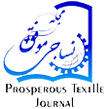Sustainability drivers in the man-made fibre industry
By André Wissenberg, Head of Marketing, Corporate Communications and Public Affairs, Oerlikon Polymer Processing Solutions Division
The development of machines in the man-made fibre industry has elevated product quality and efficiency to a new level over the course of many years. With increasing environmental awareness in the 21st Century, the focus on energy consumption and production costs has become the driving force behind new developments, with the sector’s commercial environment in the process of changing once again. The textile value chain is part of a highly-competitive market with increasing expectations regarding sustainable manufacturing.
Sustainability is also increasingly becoming a focus in society. The Fridays for Future movement has created a new environmental awareness among people in many countries. In parallel, images and news on the rising contamination of the oceans with plastics and microplastics in the food chain are becoming increasingly alarming. The industry is being ever-more subjected to legal stipulations, while consumer expectations for sustainable manufacturing are simultaneously increasing. Correspondingly, there are progressively more demands for well-known textile brands to convert to manufacturing apparel that is 100% recycling- or organic-based over the coming years.
This already represents a challenge for the industry along the textile value chain, demanding radical rethinking and new ideas. However, we must not forget that sustainable production does not merely comprise a production process for recycled materials.
Recycling solutions use waste
What we require are technologies that allow society to no longer release plastic waste into the environment. One example here is the compact spinning systems VarioFil rPET, with which bottle flakes can be directly processed into textile yarn using a suitable spinning process. Here, extremely efficient processes with excellent conversion rates can be achieved with well-prepared bottle flake material. The system is supplied as a stand-alone solution, complete with the requisite flake drying unit, degasification extruder and filtration unit and can be operated autonomously.
For processes which cannot guarantee the necessary flake quality in the initial phase, there is a concept that first makes a PET granulate from bottle flakes, which can in turn be spun using standard textile systems. The polyester material continues to be remelted in the case of these recycling processes. Despite all technical solutions for avoiding viscosity drops using vacuum, an impact on the melt quality can never be completely ruled out.
One of the polyester waste recycling technology processes currently most in focus is chemical recycling. Here, polyester waste such as bottle flakes and textile yarns are converted into a mixture of BHET and its oligomers using glycolysis. Subsequently, the BHET is refined by means of filtration and other steps until it is extremely pure. In a downstream condensation process, the BHET acquired can once again be processed into polyester or it is added at the corresponding stage to the main process in existing systems, where it is transformed into polyester.
Efficient technologies prevent waste and reduce energy consumption
Today, the Oerlikon Polymer Processing Solutions division is already installing polycondensation systems for manufacturing PET in volumes of more than 900 tons per day. Concepts and systems for efficient, high-quality PET recycling will expand existing technologies.
Efficient systems and processes that reduce the use of energy and materials as much as possible and avoid unnecessary consumption are at least equally important for achieving a closed material cycle. Today, the textile industry has several options available: in addition to economical and efficient machines and systems, these also include intelligent processes and – increasingly important – automation and digitalisation. But this is another chapter.

André Wissenberg, Head of Marketing, Corporate Communications and Public Affairs, Oerlikon
About Oerlikon
Oerlikon is a global innovation powerhouse for surface engineering, polymer processing and additive manufacturing. With its Oerlikon Barmag, Oerlikon Neumag, Oerlikon Nonwoven and Oerlikon HRSflow brands, the Oerlikon Polymer Processing Solutions division focuses on man-made fibre plant engineering and flow control equipment solutions. Oerlikon has 11,800 employees, 207 locations in 38 countries and sales of CHF 2.65 billion in 2021.

